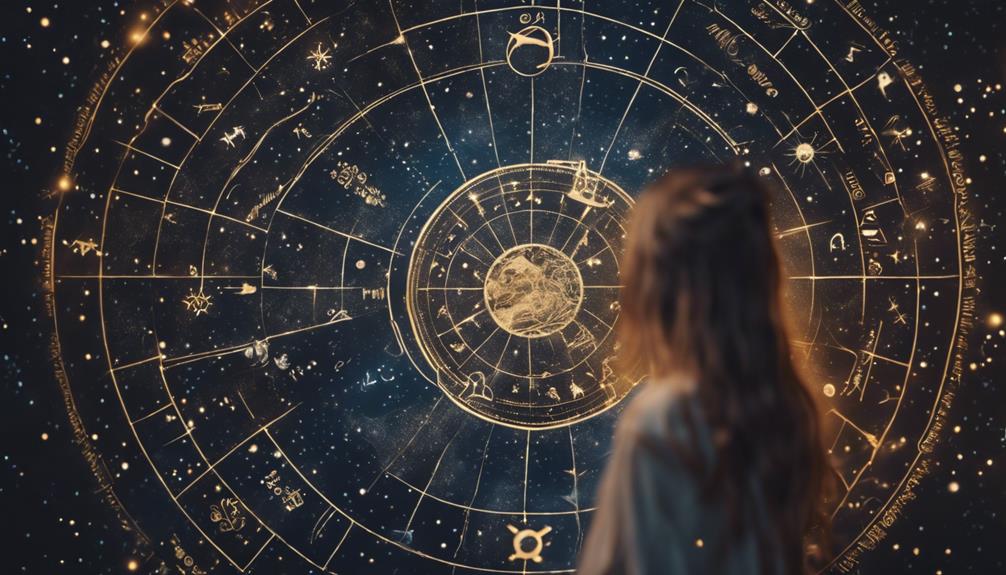Why Do Men Hate Astrology
The disdain that many men exhibit towards astrology can be traced back to a complex interplay of societal expectations, gender norms, and scientific skepticism. From a young age, males are often steered away from practices viewed as mystical or feminine, reinforcing a cultural divide. Moreover, the lack of empirical evidence supporting astrology fuels a perception of it as unscientific, leading scientifically-inclined individuals to dismiss it outright. But is this aversion purely rational, or are there deeper, less obvious influences at play?
Key Takeaways
- Traditional gender norms discourage men from exploring astrology, associating it with femininity and mysticism.
- Men's preference for evidence-based reasoning makes them skeptical due to astrology's lack of empirical support.
- Societal expectations of masculinity lead men to avoid astrology to maintain their perceived strength.
- Media often portrays astrology as trivial entertainment, reinforcing stereotypes and skepticism.
- Men may fear vulnerability and introspection, making them reluctant to engage with astrology.
Societal Expectations and Beliefs

Societal expectations and beliefs play a pivotal role in shaping men's attitudes towards astrology. Influenced by traditional gender norms and entrenched cultural perceptions, astrology is historically associated with femininity and mysticism. This cultural bias discourages men from engaging with astrological practices, as they fear being perceived as less rational or masculine. Consequently, many men avoid exploring astrology in order to conform to societal norms that value scientific reasoning over spiritual or esoteric practices.
These societal influences can create a barrier to self-expression, ultimately limiting personal growth and the exploration of diverse interests.
Gender Norms and Stereotypes
Gender norms and stereotypes significantly influence men's perceptions of astrology, often dictating what is deemed acceptable or appropriate for their gender. The following table highlights common stereotypes, their impacts, and the consequences for men:
| Stereotype | Impact on Men | Consequence |
|---|---|---|
| Astrology is feminine | Men avoid astrology | Limited self-exploration |
| Men are logical | Preference for empirical evidence | Dismissal of astrology |
| Emotions are feminine | Disregard for emotional insights | Missed personal growth opportunities |
| Astrology is trivial | Viewed as unproductive | Lack of engagement |
| Masculinity is rational | Astrology seen as irrational | Stigma around interest |
Recognizing these stereotypes is the first step in addressing and challenging biased attitudes toward astrology.
Scientific Skepticism

Scientific skepticism towards astrology is primarily driven by its lack of empirical evidence and its failure to conform to the principles of scientific inquiry. Astrology’s reliance on celestial positions to predict human behavior and life events stands in stark contrast to the rigorous methodologies demanded by science. Critics argue that astrological predictions are often vague and lack reproducibility, which is essential for scientific validation.
The absence of a plausible mechanism explaining how planetary alignments could influence personal traits further undermines astrology's credibility. As a result, many men who prioritize evidence-based reasoning tend to reject astrology outright.
Cultural and Religious Influences
While scientific skepticism plays a significant role, cultural and religious influences also shape attitudes toward astrology. In many cultures, astrology is deeply intertwined with traditional beliefs and practices, often regarded as a source of ancient wisdom. However, some religious doctrines explicitly discourage engagement with astrological practices, labeling them as superstitious or contrary to spiritual teachings.
These religious and cultural contexts can further reinforce the idea that astrology is incompatible with traditional notions of masculinity, thereby intensifying the skepticism among men.
Astrology as Entertainment

Despite its contested scientific validity, astrology remains a popular form of entertainment. Many people enjoy reading personalized horoscopes and birth chart analyses, which provide insights into personality traits and potential life paths. However, for many men, the entertainment value is overshadowed by a strong preference for empirical evidence and rational explanations.
This divergence highlights a broader societal debate between embracing intuitive, symbolic interpretations and upholding scientific rigor.
Personal Experiences
Personal experiences play a crucial role in shaping attitudes towards astrology. These experiences can stem from cultural upbringing, influential relationships, or firsthand encounters with astrological practices. For some men, positive interactions with astrology offer valuable insights into self-reflection and personal growth. For others, negative or dismissive experiences reinforce a perception of astrology as unscientific and trivial.
The following factors often shape these diverse experiences:
- Exposure to astrological readings during formative years
- Influence of partners or friends who actively engage with astrology
- Encounters with inaccurate or overly generalized astrological predictions
- Personal alignment with or opposition to scientific principles
Benefits of Astrology

Despite the skepticism, engaging with astrology can offer several benefits:
- Self-Reflection: Astrology provides insights into personality traits and life paths, enhancing self-awareness.
- Improved Relationships: By offering perspectives on compatibility and communication styles, astrology can foster stronger connections.
- Mental Well-Being: A structured approach to life's uncertainties can reduce stress and promote balance.
The table below summarizes these benefits and their outcomes:
| Benefit | Explanation | Outcome |
|---|---|---|
| Self-Reflection | Insights into personality traits and life paths | Enhanced self-awareness |
| Improved Relationships | Perspectives on compatibility and communication | Stronger connections |
| Mental Well-Being | Structured approach to life's uncertainties | Reduced stress |
Challenging Stereotypes
Overcoming the negative stereotypes that discourage men from exploring astrology requires a multifaceted approach:
- Promote Open Conversations: Encourage discussions where men can share their views on astrology without judgment.
- Highlight Diverse Experiences: Share success stories and personal experiences of men who have found value in astrology.
- Challenge Cultural Biases: Re-examine traditional beliefs that link astrology exclusively with femininity.
- Educate on Benefits: Inform about the potential for self-reflection, improved relationships, and enhanced well-being through astrological insights.
Conclusion
The widespread dismissal of astrology by many men is not merely a matter of scientific skepticism. It is deeply intertwined with societal expectations, entrenched gender norms, and cultural influences. While a preference for evidence-based reasoning plays a significant role, these broader influences also contribute to the perception of astrology as unscientific and incompatible with traditional masculinity.
By challenging these stereotypes and embracing the potential benefits, both in self-reflection and personal growth, a more nuanced understanding of astrology can emerge—one that transcends gender and invites richer, more inclusive dialogues.
🔴 Need Clarity on your Situation?



